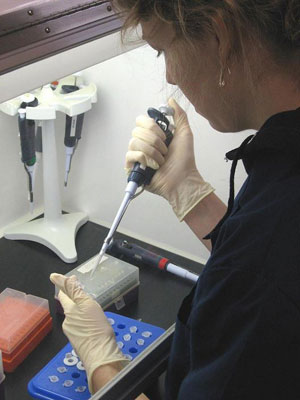Microbiologist
Tasks & duties

Microbiologists may do some or all of the following:
-
analyse and/or perform tests and experiments on micro-organisms
-
identify and characterise micro-organisms including those that cause disease
-
develop micro-organisms and the products of their growth for use in vaccines and medicines
-
grow micro-organisms to use in food such as yoghurt and cheese
-
identify micro-organisms that may pollute food, water and the environment
-
find ways for micro-organisms to help humans
-
prepare reports and papers, and present results
-
provide technical guidance to assistants
Skills & knowledge
Microbiologists need to have:
-
knowledge of molecular biology and genetics, biochemistry and chemistry
-
practical skills for performing experiments and operating scientific equipment
-
knowledge of laboratory hazards and proper safety procedures
-
skill in analysing and interpreting research results and other information
-
problem-solving skills
-
planning and organisational skills
-
presentation skills
-
writing skills, for report writing or grant proposals
-
maths and computer skills
Entry requirements
To become a microbiologist you need to have a Bachelor of Science, majoring in microbiology, biotechnology, biochemistry or molecular biology. Postgraduate qualifications, such as a Masters degree or Doctorate, are recommended for those wanting to enter research-based positions.
Secondary education
A tertiary entrance qualification is required to enter further training. Bursary or NCEA equivalent biology, maths, chemistry and physics are preferred.
Training on the job
Many skills can be gained on the job. Microbiologists may also attend workshops and conferences to learn about new developments.
Useful experience
Useful experience for microbiologists includes laboratory work and familiarity with computers and computer software programs. Some medical microbiologists will find medical experience useful.
Related courses
Epidemiology
Food Science and Biotechnology
Human Biology
Laboratory Technology
Microbiology
For more information, please refer to Career Services.
Document Actions
